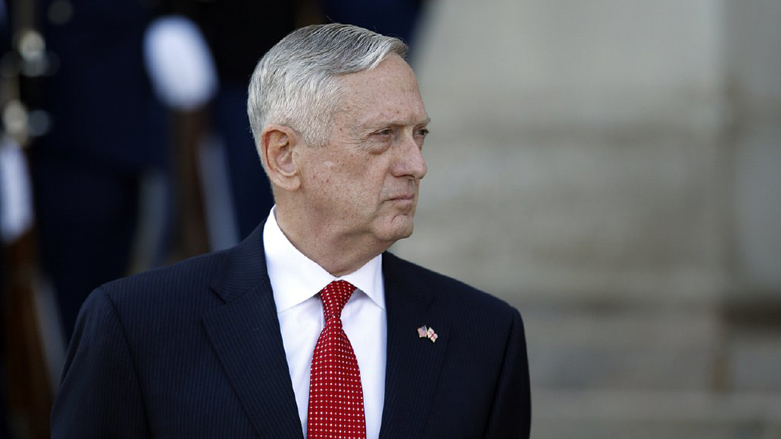Pentagon reluctantly endorses 'mechanism' with Turkey to resolve disputes

WASHINGTON DC, United States (Kurdistan 24) – US Secretary of Defense Jim Mattis leveled his strongest criticism to date of Turkey’s assault on the isolated Kurdish canton of Afrin on Friday.
Returning to Washington from Germany, Mattis said that the US understands Turkey’s “legitimate security concerns,” but “that does not align with us concurring with attacks into areas that were not sources of violence before,” citing Afrin as an example of such an area.
Mattis made his statement, however, in the context of confirming that the Pentagon would work within the framework of the understanding that US Secretary of State Rex Tillerson reached in Ankara last week.
On Wednesday, Tillerson held a three-hour long meeting with Turkish President Recep Tayyip Erdogan. The following day, he met with Cavusoglu.
A “Joint Statement on Turkey–U.S. Strategic Partnership” was issued at the end of Tillerson’s visit. It reaffirmed both parties’ commitment to “resolving outstanding issues” between them.
“The two sides agreed to establish a results-oriented mechanism” to resolve those issues, the statement explained. “This mechanism will be activated no later than mid-March.”
No details about the “results-oriented mechanism” for Turkish-American coordination have publicly emerged, and it may well be only loosely defined at this point.
Journalists traveling with Mattis, asked, “How would these mechanisms work in Afrin and Manbij?”
“That’s exactly what we have to work out,” Mattis replied.
“There’s a commitment now to work them out,” he continued. “We have to draw them up together, and then we have to employ them.”
“We concur with Turkey on the need for locals taking control of the liberated areas,” Mattis said. He affirmed that the US would work with Turkey on that issue and “on every other irritant, or diversion, or distraction.”
The question of Afrin appears moot. The US is not present there, and the latest reports suggest that the Kurdish People’s Protection Units (YPG), who control the area and who have been defending it against Turkish attack for the past month, will soon reach an understanding with Damascus.
Reportedly, Syrian forces are on the verge of entering Afrin to help protect it against Turkish assault.
Possibly, the Turkish intervention in Afrin will end once Damascus and the YPG conclude an agreement. Hassan Hassan, a Syrian-American and author of a best-selling book on the Islamic State (IS), tweeted as much on Sunday.
In Manbij, however, the US and Turkey will have to work out a “mechanism” for addressing their concerns. The two have been most clearly at odds over the city where US Special Forces are present.
Manbij is administered by the Manbij Military Council (MCC), which is 60% Arab. However, the MCC was trained and established by the YPG, and Turkey has objected to even that limited presence.
Turkish officials have repeatedly demanded that the YPG in its entirety leave Manbij and have even threatened to attack US forces there.
The US, in turn, has strongly resisted the Turkish demands.
On Feb. 7, Lt. Gen. Paul Funk, Commander of Combined Joint Task Force—Operation Inherent Resolve (CJTF-OIR) toured the area. Journalists accompanying him described a thriving city, including a market thronged with shoppers and a population friendly to US troops.
Funk compared the scene with Iraq and other war zones, saying that Syria, or more specifically Syrian Kurdistan where he was touring, was “delightful” by comparison.
Similarly, CENTCOM Commander Gen. Joseph Votel last month said that withdrawing US troops from Manbij is “not something we are looking into.”
However, it now appears that the US military will have to make some adjustments to its earlier plan in order to accommodate the newly concluded understanding.
Editing by Nadia Riva
